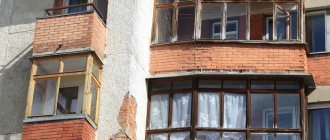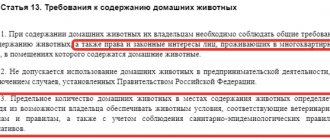Pravozhil.com > Real estate registration > Common areas in a communal apartment - from and to about living in a communal apartment
All residents of communal apartments know that their housing has two territorial units - common areas and personal possessions of citizens. Depending on the location of the tenant in the apartment, his rights and obligations are determined, which he must comply with.
Many citizens living in communal apartments are superficially familiar with the rules of living in such housing, which is not always good.
In order to protect readers of our resource from potential problems, today’s material will examine in as much detail as possible all the rights and obligations of the residents of these apartments, which are enshrined in law and are mandatory for compliance.
What is a “communal apartment”
Important! Please keep in mind that:
- Each case is unique and individual.
- A thorough study of the issue does not always guarantee a positive outcome. It depends on many factors.
To get the most detailed advice on your issue, you just need to choose any of the options offered:
- Use the online chat in the lower corner of the screen.
- Call: Federal number: +7 (800) 511-86-74
The premises contain several rooms that all neighbors are allowed to use. A typical “utility” includes:
- bathroom;
- kitchen;
- corridor.
The use of communal housing is carried out in accordance with the Housing Code. The rules of residence are described in detail in Article 30 of the Housing Code. The premises may immediately belong to several owners, who are given the right to rent it out to tenants. To do this, the owner must obtain written consent from the neighbors.
Residents of the "communal apartment" are required to comply with the rules of the hostel. All residents and tenants have specific rights. To create a normal life, neighbors have a number of responsibilities:
- repair;
- payment for housing and communal services;
- use of the apartment.
In order to live in normal conditions, every person in a “communal apartment” must take into account the current law, according to which the peaceful coexistence of the owners of the premises is maintained.
What it is?
The Housing Code of the Russian Federation establishes the following types of residential premises: residential building, part of a residential building, apartment, part of an apartment, room. However, there is no clear definition of what a communal apartment is in Russian legislation. Formally, it is a series of residential premises in which not members of the same family live, but strangers. The rooms can belong to the municipal housing stock or be owned by the residents.
A communal apartment is characterized by the presence of common areas, for example, a kitchen, a bathroom, and a corridor. When selling a room, other residents have the right of first refusal to purchase it. This is the main difference between this type of real estate and any other.
House Rules
Russian Government Decree No. 25, issued on January 21, 2006, describes in detail the rights and obligations of residents of residential premises. This also applies to communal premises if they:
- employers;
- owners;
- cooperative members;
- tenants.
Residents of communal apartments are allowed to rent out rooms to tenants. But this requires interviewing all owners and obtaining consent for tenants to live.
Sometimes an apartment becomes communal, for which the court issues a ruling to divide the existing premises into two or three parts. Initially, in a communal apartment, the division by area was defined as:
- individual;
- general.
However, according to the law, real estate determined by the cadastral passport is considered communal. Residents of a communal apartment have the right not to coordinate their independent actions with other apartment owners when it is required:
- use joint property for its intended purpose;
- register tenants in accordance with the established standards;
- sell;
- give;
- exchange;
- bequeath;
- receive guests without violating sanitary rules (noise, hygiene).
If guests come to the residents, neighbors should not prohibit them from using common property. No one has the right to create obstacles for the homeowner, if his behavior is incorrect, you can use:
- kitchen;
- bathroom;
- bathroom
The owner has the right to install his own things in the closet, hallway or utility room. Responsibility for prohibiting the use of common property will be borne by people who create obstacles for the owner of the premises.
Rights and responsibilities of neighbors
Homeowners and tenants can live in this type of apartment.
All residents can use and own the apartment to the same extent; the owners have the right to dispose of the property that belongs to them.
The owner can register citizens on the territory of his premises, both on a temporary basis (up to six months) and on a permanent basis; he has the right to sell his own share in the communal apartment, donate it to another person, or exchange.
The tenant of a residential premises (if the housing is municipal) has the right to rent it out, observing a number of the following requirements:
- There must be at least 12 sq.m. per person;
- The lessor must give his consent to this in writing.
Both tenants of housing and its owners have the right to accommodate residents free of charge without the consent of the other parties.
Owners and tenants of housing are obliged to use residential premises for their intended purpose, for living.
The owner’s responsibilities include maintaining the residential premises in proper condition while respecting the interests of neighbors, as well as timely payment of bills for water, heating and other utilities.
Responsibilities of owner-occupiers
In principle, it is difficult to separate rights from responsibilities. These phenomena are constantly connected with each other. The right to own common property requires compliance with certain rules. Responsibilities allow the exercise of rights without interfering with each other. For residents of communal premises, they are divided into universal and specific.
Strict implementation of environmental laws belongs to the first group. Residents of a separate apartment, as well as any communal apartment, are prohibited from making noise until seven o’clock in the morning, starting from eleven o’clock in the evening. It is not allowed to break equipment, pollute the air, or smoke in public places.
Specific responsibilities apply only to people living in communal premises. These include:
- cleaning;
- plumbing maintenance;
- replacement of metering devices;
- renovation of the premises.
Of course, property owners are obliged to preserve utilities located in the basement of the house, entrance, and local area. In addition, residents must maintain cleanliness inside the premises, determine the condition of communications in the room, and promptly repair them.
What cannot be done without obtaining permission from neighbors in a communal apartment
Communal payments
Residents pay for services according to the size of their share in the common real estate.
Two payment options:
- When there are no individual devices showing resource consumption, payment is made according to a special agreement, taking into account the amount of space occupied or the number of registered persons.
- When individual metering devices are installed, then each party makes payment according to their readings, and the use of the common territory is paid for by agreement.
It happens that residents cannot find a compromise, in this situation the rules are as follows:
- Heating services are paid according to the available shares in the apartment;
- Payment for water supply and gas is distributed among persons living in the apartment, based on their number, as well as guests staying in the premises for more than 30 days;
- Payment for electricity occurs by calculating the power and number of devices located in each room;
- As for maintenance and repair work, this item is paid taking into account the size of the actual premises and the size of the share per each owner.
If a neighbor does not pay for utilities, by law the other residents of the apartment are not required to pay his debts.
Common areas
Owners of a communal apartment, according to current legislation, have the right to use the territory allocated for general use. These include:
- kitchen;
- bathroom;
- corridor;
- hallway;
- bathroom.
Moreover, each tenant is allowed to occupy an area corresponding to the available share with furniture. The law does not establish the procedure for using places intended for all residents of a communal apartment. That is why conflict situations related to these territories are resolved in court. In addition to the rights to use such an area, the owners are obliged to maintain this space in order and, if necessary, carry out repair operations.
Where is smoking allowed?
Current legislation provides for restrictions on smoking cigarettes in public places. In other words, by default this is only allowed in your own room. Such actions are strictly prohibited on public territory.
If your neighbors happen to be smokers, you are allowed to smoke in separate rooms that they have agreed upon with each other. Fire safety rules must be observed in this area.
Note that the current regulations regarding communal apartments do not mention smoking anywhere. However, if a smoker creates uncomfortable living conditions for neighbors, they still have the right to demand that they stop smoking.
If a neighbor ignores these requests, residents can ask the local police officer for help. Of course, this option is best used only as a last resort. Lawyers advise resolving the issue peacefully without involving law enforcement agencies.
Pets
You cannot have a dog or other pet without your neighbors' permission. You will have to take care of it; a foreign smell will appear in the room. You will not need a permit to breed fish. They are silent, do not smell and swim quietly in the aquarium.
A few years ago, a special rule was applied, according to which a resident who wanted to care for a pet in a “communal apartment” was obliged to coordinate this issue with each neighbor. Written permission was required from them. On January 21, 2006, the Russian Government issued Decree No. 25 “On approval of the Rules for the Use of Residential Premises.” This regulation has ceased to apply.
The repeal of this provision cannot be considered a permission to keep any pet in a communal apartment. Neighbors will experience discomfort from the presence of the pet. Tenants have the right to demand his eviction. In addition, its presence may cause an allergic reaction. When it is not possible to reach a peaceful agreement, neighbors can file an application with the judicial authorities.
If a tenant has been caring for a pet for many years, he must follow several important rules that correspond to a “communal” hostel:
- Neighbors should not have problems with the animal. The owner must take into account the situation, as well as the interests of other residents.
- It is strictly forbidden to keep a sick pet in a communal apartment. The room must meet sanitary and hygienic standards.
- The premises must comply with modern environmental requirements.
How are housing and communal services paid?
Payment for living in a communal apartment can be made in several ways. It all depends on the current situation:
- The receipt will be general. Residents pay equally or in a certain proportion, according to the existing agreement between them.
- Each tenant has the right to open their own personal account to pay only for themselves. This will avoid conflict situations with neighbors.
Putting things in order
Residents of communal apartments are required to constantly clean. Each room must always be kept in perfect order, the room must have a clean and tidy appearance. Responsibility is established by the housing code standards, which state that neighbors are assigned a specific obligation to clean the premises.
Residents of a communal apartment set their own cleaning schedule. The order of priority is determined by the general meeting of residents. Moreover, everything written in the room must be taken into account. The order of duty is established jointly.
Each tenant, according to the Housing Code, is responsible with his own funds for the maintenance of all property in the room. The amount of money is directly proportional to the size of the share of property owned by the owner of the premises.
Ownership of common property in a communal apartment
This aspect of cohabitation is discussed in more detail in Art. 41 Housing Code of the Russian Federation. That is why all practicing lawyers turn to this legal regulation in order to correctly interpret all controversial issues that arise.
According to the presented article, living rooms in a “communal apartment”, which have the status of isolated ones, are recognized by legislative norms as independent objects of property rights. In other words, legal acts oblige the state registration of all residential premises when carrying out legal transactions with the specified type of property and in other cases regulated by the federal legislation of the Russian Federation.
As for the issue of common property, in this case the premises are given the status of common shared ownership. The logical conclusion follows from this rule that state registration of the right to common property in such situations is not provided for by law.
The right of ownership extended to common property in a communal apartment arises due to the fact that the owner has the right of ownership to isolated living rooms.
In addition, it is interesting that a communal apartment itself is not recognized as a separate object of ownership. This rule was derived from the fact that only living rooms are recognized as the object of ownership in such apartments. The rest of the useful property of public use is in shared ownership.
Here another question arises - how is the transfer of a share of common property to the newly created owner carried out? The answer is simple. The right to a share in a communal apartment arises precisely at the moment when the new owner is endowed by law with the right of ownership of the acquired living rooms in the process of purchase and sale, donation, inheritance. In this case, the size of the share of the new owner must fully correspond to the size of the share of the common property of the old owner.







